The Hidden Security Challenges of 5G Networks
10 March 2025
5G is here, and it's a game-changer. Faster speeds, lower latency, and the ability to connect millions of devices make 5G the backbone of the next generation of technology. But here’s the catch – while 5G delivers incredible advancements, it also comes with a whole new set of security challenges that many people aren’t even thinking about yet.
You see, with every shiny new innovation comes potential risks, and 5G is no different. As we usher in this era of ultra-fast connectivity, we’re also cracking open a door for cyber threats that could have serious consequences. Now, I’m not here to scare you, but it’s important to understand the hidden security challenges of 5G networks. So, buckle up – we’re about to take a deep dive into the murky waters of 5G security.

What’s So Different About 5G?
Before we dive into the security stuff, let's take a moment to understand what makes 5G different from its predecessors, like 4G and LTE.5G isn't just about faster internet on your phone. Sure, you’ll be able to download HD movies in seconds, but that’s just the tip of the iceberg. The real magic of 5G is its ability to connect everything – from smart cars to refrigerators, to entire smart cities. Think of 5G as the nervous system of the future digital world.
But here’s the thing – with more connections come more vulnerabilities. Each connected device becomes a potential gateway for hackers. And with 5G, we’re not just talking about phones anymore; we’re talking about critical infrastructure, like power grids and healthcare systems. You can see where this is going, right? More devices, more risks.
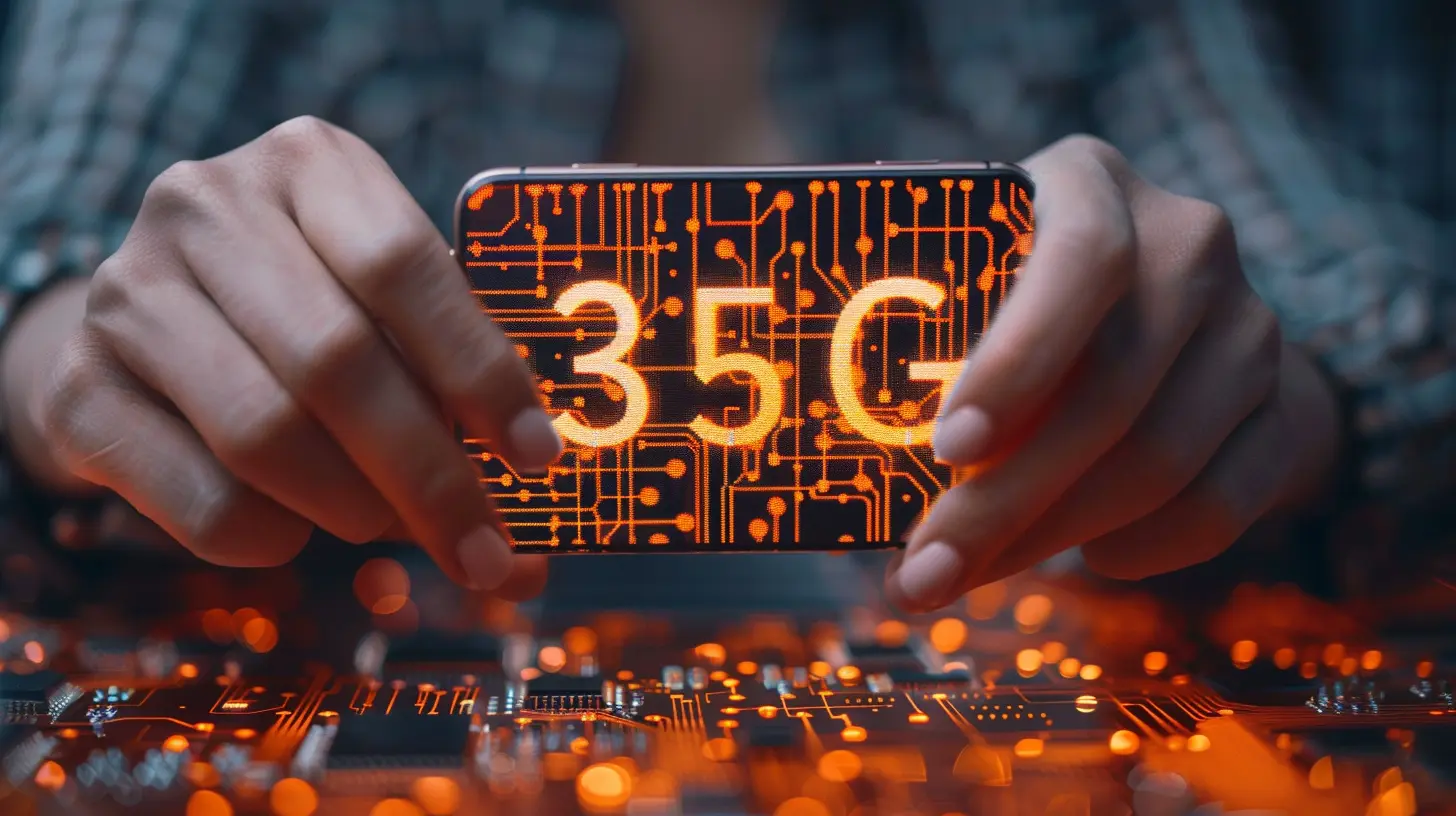
The Rise of IoT and Its Security Implications
The Internet of Things (IoT) is booming thanks to 5G. This technology allows devices to communicate with each other in real-time, making our lives more convenient. However, it also opens up a Pandora’s box of security issues.Imagine your smart thermostat being hacked and used to spy on your home. Or a hacker taking control of your connected car while you're driving. These aren’t “what if” scenarios anymore. They’re becoming real-life concerns with the rise of 5G networks.
The problem? Many IoT devices are built for convenience, not security. Manufacturers often prioritize ease of use over robust security protocols, leaving these devices vulnerable to attacks. And when millions of poorly-secured devices are connected to a 5G network, the risks multiply exponentially.
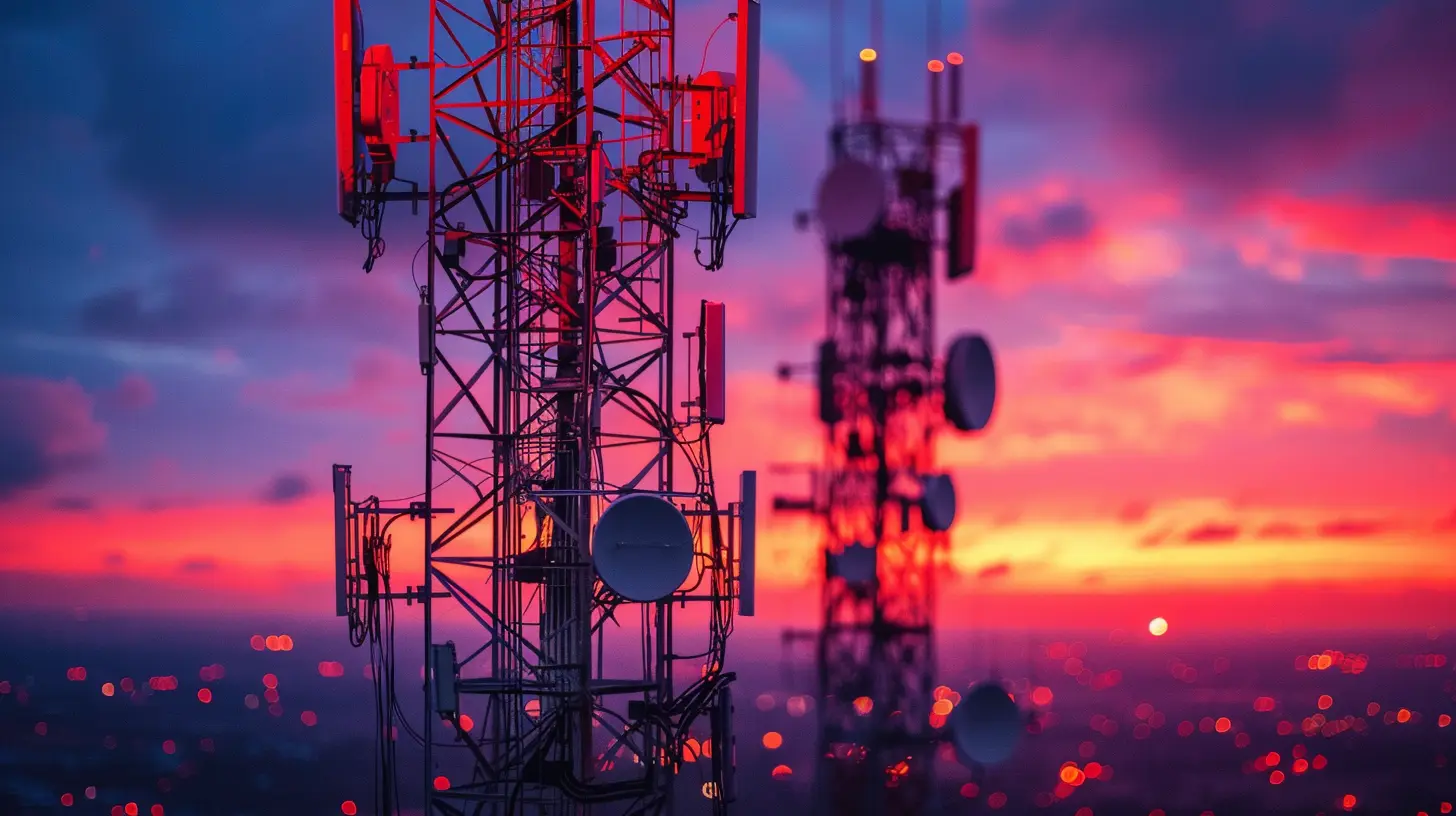
Increased Attack Surface
One of the biggest hidden security challenges of 5G is the sheer size of the attack surface. Imagine trying to protect a house with one door versus a mansion with dozens of windows, doors, and secret passageways. Which one do you think is harder to secure?With 5G, we’re essentially building a massive digital mansion. The more devices and systems we connect, the more entry points we create for cybercriminals. And unlike previous networks, 5G operates on a decentralized architecture, meaning more devices are directly connected to the internet without going through a central hub.
This decentralization is great for speed and efficiency but terrible for security. It makes it much harder to monitor and control the flow of data, giving hackers more opportunities to slip through the cracks unnoticed.
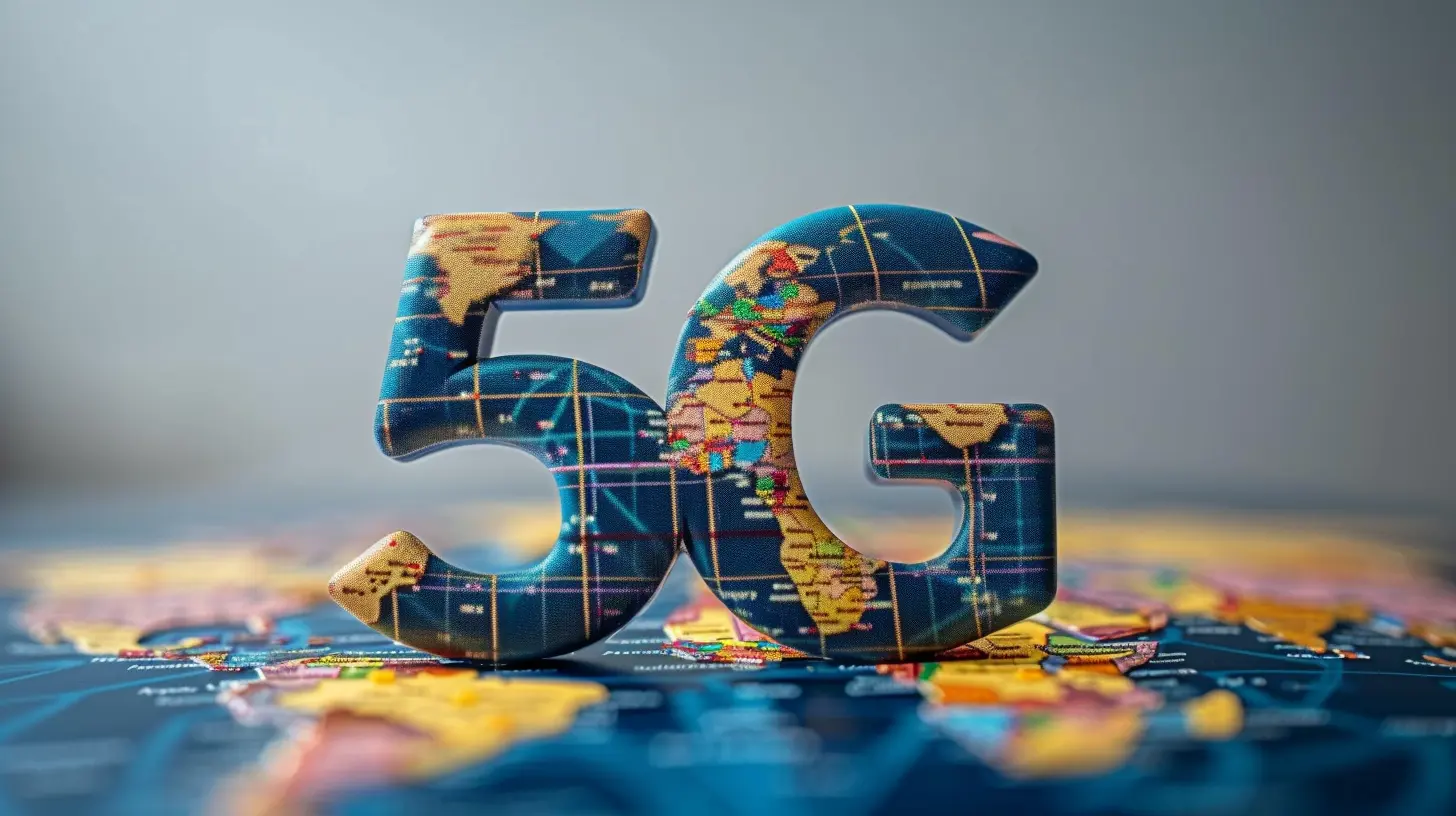
The Complexity of Network Slicing
One of the coolest features of 5G is something called network slicing. Think of it like cutting a pie – you can slice up the 5G network to create virtual private networks within the public infrastructure. This allows different industries and applications to have their own dedicated “slice” of the 5G network, tailored to their specific needs.Sounds awesome, right? It is. But there’s a catch (there’s always a catch). Each of these slices presents a unique security challenge. If one slice gets compromised, it could potentially impact the other slices. It’s like having multiple tenants in an apartment building – if one person leaves their door unlocked, it could jeopardize the safety of the entire building.
Network slicing adds complexity to an already complex system, making it harder to maintain consistent security across all the slices. And as we know, increased complexity usually means more vulnerabilities.
Supply Chain Vulnerabilities
Now, let’s talk about something that often flies under the radar: the supply chain. 5G networks rely on a vast ecosystem of hardware and software from multiple vendors across the globe. While this helps drive innovation and lowers costs, it also opens the door to potential security risks.Think about it – if even one component of the 5G infrastructure has weak security, it can compromise the entire network. Cybercriminals or even state-sponsored actors could inject malicious code or hardware into the supply chain, giving them a backdoor into the network.
Supply chain attacks are notoriously difficult to detect because they often occur before the product even reaches the end user. And with the global nature of 5G infrastructure, it’s hard to ensure that every piece of hardware and software is secure.
The Threat of State-Sponsored Cyberattacks
Let’s not beat around the bush – 5G has become a battleground for geopolitical tensions. Nations realize that whoever controls 5G controls the future. And that means state-sponsored hackers are ramping up their efforts to exploit 5G networks.Governments and military organizations rely heavily on secure communication networks, and with 5G becoming a critical part of national infrastructure, it’s a prime target for espionage and sabotage. State-sponsored attackers have more resources, better tools, and more patience than your average hacker, making them a significant threat.
We’ve already seen tensions rise over which companies should be allowed to build 5G infrastructure. Some countries have banned certain vendors over fears of espionage. And while these measures help, they don’t eliminate the risk entirely.
Lack of Standardized Security Protocols
Here’s another big issue – there’s no global standard for 5G security, at least not yet. Different countries and organizations are rolling out 5G at different paces, with varying levels of security measures in place. This lack of standardization creates a patchwork of security protocols that cybercriminals can exploit.In some places, 5G networks might be built with strong encryption and rigorous security standards. In others, security might be more of an afterthought. This inconsistency makes it easier for hackers to find and exploit weak spots in the global 5G infrastructure.
Until we have a unified, global approach to 5G security, these vulnerabilities will continue to be a major concern.
Potential for DDoS Attacks
You’ve probably heard of Distributed Denial of Service (DDoS) attacks – they’re where hackers flood a network with so much traffic that it crashes. Well, with 5G’s ability to connect millions of devices, the potential for DDoS attacks increases significantly.Imagine a hacker using thousands of compromised IoT devices (remember, many of these aren’t built with strong security) to launch a DDoS attack on a critical 5G network. The sheer volume of traffic could overwhelm the system, causing major disruptions to businesses, governments, and even emergency services.
The scary part? 5G’s increased capacity means these attacks could be more powerful than ever before. And because 5G is designed to connect critical infrastructure, the consequences of such an attack could be catastrophic.
The Role of Artificial Intelligence in 5G Security
Here’s where things get interesting – while 5G itself presents security challenges, it also opens up opportunities to use cutting-edge technologies like Artificial Intelligence (AI) to improve security.AI can be used to monitor 5G networks in real-time, identifying and responding to threats faster than any human could. Machine learning algorithms can detect unusual patterns of behavior, flagging potential cyberattacks before they cause major harm.
However, AI isn’t a silver bullet. While it can enhance security, it can also be used by hackers to launch more sophisticated attacks. Cybercriminals are already using AI to automate their attacks, making them faster and harder to detect.
So, while AI holds promise for improving 5G security, it’s also a double-edged sword that could be used against us.
Securing the Future of 5G
So, what can we do about all these hidden security challenges? Well, there’s no one-size-fits-all solution, but there are a few key steps that need to be taken.1. Stronger security standards: Governments and industry leaders need to work together to establish global 5G security standards. This includes stronger encryption, better authentication protocols, and more consistent security practices across the board.
2. Securing IoT devices: Manufacturers need to prioritize security when designing IoT devices. This means building in stronger encryption, regular software updates, and better user controls.
3. Investing in security technologies: AI and machine learning can play a crucial role in identifying and mitigating threats in real-time. Governments and businesses need to invest in these technologies to stay ahead of cybercriminals.
4. Training and awareness: Cybersecurity isn’t just about technology – it’s also about people. Businesses and governments need to invest in training and raising awareness about the unique security challenges of 5G.
Conclusion
5G is a revolution in connectivity, but it’s not without its risks. As we embrace this new technology, we need to be mindful of the hidden security challenges that come with it. From the rise of IoT to the complexity of network slicing, to the threat of state-sponsored attacks, 5G presents a whole new landscape for cybercriminals to exploit.But with the right strategies in place – stronger security standards, better-secured devices, and smarter technologies – we can mitigate these risks and build a safer, more secure 5G future.
all images in this post were generated using AI tools
Category:
5g TechnologyAuthor:

Adeline Taylor
Discussion
rate this article
15 comments
Kyle Robinson
5G promises speed but demands vigilance; understanding its vulnerabilities is crucial for securing our future.
April 6, 2025 at 3:33 AM

Adeline Taylor
Thank you for highlighting the importance of vigilance in 5G security. Understanding its vulnerabilities is indeed essential for safeguarding our digital future.
Amalia Harris
Insightful article! Essential points on 5G security.
April 5, 2025 at 6:49 PM

Adeline Taylor
Thank you! I'm glad you found the insights valuable.
Owyn Anderson
5G networks introduce complex vulnerabilities, necessitating robust security frameworks to safeguard against unprecedented cyber threats.
April 4, 2025 at 2:46 AM

Adeline Taylor
Thank you for your insightful comment! Indeed, the complexity of 5G networks demands advanced security measures to address emerging cyber threats effectively.
Nicole Gonzalez
Important insights—security must keep pace with innovation!
April 1, 2025 at 8:37 PM

Adeline Taylor
Thank you! Indeed, aligning security with the rapid advancements in 5G is crucial to safeguard our networks effectively.
Nadia Conrad
Great insights! 5G's security challenges are crucial for future tech developments.
March 27, 2025 at 5:43 AM

Adeline Taylor
Thank you! I'm glad you found the insights valuable. Addressing 5G's security challenges is indeed vital for safe tech advancements.
Wade Matthews
5G: faster streaming, but watch out for sneaky security gremlins! Let’s keep our data safe while we zoom through cat videos at lightning speed!
March 26, 2025 at 9:11 PM

Adeline Taylor
Absolutely! While 5G enhances speed, it's crucial to prioritize security to safeguard our data against potential threats.
Zia Wilkerson
Thank you for shedding light on the often-overlooked security challenges of 5G networks. It's crucial to address these vulnerabilities, as they directly impact our everyday lives and data privacy. Your insights will help raise awareness and encourage proactive measures to safeguard our digital future. Keep up the great work!
March 21, 2025 at 4:47 AM

Adeline Taylor
Thank you for your thoughtful feedback! I'm glad the article resonated with you, and I appreciate your support in raising awareness about 5G security challenges.
Mary Mahoney
5G promises lightning-fast connections, but beneath the surface lurk security vulnerabilities that could outpace innovation. As we race forward, let’s not forget to fortify our digital frontiers before the next wave hits.
March 20, 2025 at 3:23 AM

Adeline Taylor
Thank you for your insightful comment! It's crucial to address security vulnerabilities as we embrace 5G technology, ensuring robust defenses keep pace with innovation.
Thalia McManus
Great article! It's fascinating to see how 5G technology is revolutionizing connectivity, but the security challenges are definitely a concern. As we embrace the faster speeds, we must also prioritize safeguarding our data. Looking forward to seeing how these issues are tackled in the future!
March 17, 2025 at 3:26 AM

Adeline Taylor
Thank you for your thoughtful comment! You're absolutely right—balancing innovation with security is crucial as we navigate the 5G landscape. I appreciate your insights!
Wyatt McGovern
This article highlights crucial aspects of 5G security that often go unnoticed. With the increasing reliance on 5G for critical infrastructure, understanding vulnerabilities such as data privacy risks and potential cyberattacks is essential. Addressing these challenges proactively will be key to safeguarding our digital future. Great insights!
March 15, 2025 at 4:18 AM

Adeline Taylor
Thank you for your thoughtful comment! I'm glad you found the insights on 5G security important. Addressing these vulnerabilities is indeed critical for a secure digital future.
Ember Sawyer
As 5G technology advances, understanding its unique security vulnerabilities is crucial. Enhanced speed and connectivity bring risks that demand proactive measures to safeguard users and infrastructure.
March 14, 2025 at 8:22 PM

Adeline Taylor
Thank you for highlighting this important aspect! Addressing 5G security vulnerabilities is indeed vital to ensure both user safety and infrastructure integrity as technology evolves.
Julia Flores
“5G networks are like a cat in a sunbeam—glorious but full of hidden surprises! As we race toward lightning-fast connectivity, let’s not forget the shadows lurking behind the sparkle. Who knew our smart toasters might be harboring secrets? Here’s to keeping our digital breakfast safe and sound!”
March 13, 2025 at 8:26 PM

Adeline Taylor
Thank you for the creative analogy! You're right—while 5G offers exciting advancements, we must remain vigilant about the potential security risks that come with increased connectivity in our everyday devices.
Vesper Perez
Important insights, stay vigilant!
March 13, 2025 at 4:48 AM

Adeline Taylor
Thank you! Vigilance is key in navigating the complexities of 5G security.
Tracie Lee
Great article! It’s fascinating to see how 5G promises speed and connectivity while also presenting unique security challenges. Understanding these issues is crucial for users and businesses alike. Keep it up!
March 12, 2025 at 5:30 AM

Adeline Taylor
Thank you for your feedback! I'm glad you found the article insightful. Understanding 5G's security challenges is indeed vital for everyone.
Greta Collins
Oh, fantastic! Just what we needed—yet another tech marvel promising lightning-fast downloads while hiding a treasure chest of security issues! Who doesn’t love a game of digital whack-a-mole? Can’t wait to see how many “hidden” challenges pop up next!
March 10, 2025 at 8:41 PM

Adeline Taylor
I understand your concerns! While 5G does offer significant benefits, it's crucial to address the security challenges that come with it. Ongoing vigilance and proactive measures are essential for navigating this landscape.
MORE POSTS

How Blockchain is Changing Software Development
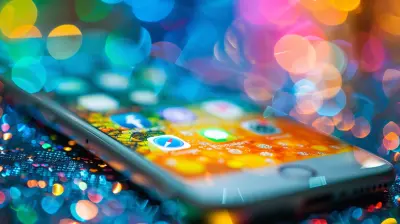
Content Creation on the Go: Mobile Apps You Can’t Miss

Real-World Applications of Machine Learning in Retail
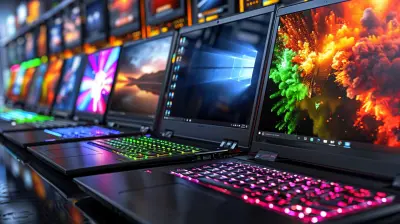
Finding the Perfect Balance Between Price and Performance in Gaming Laptops

Silent Mice for a Quiet Workspace: The Best Options Available

How to Improve Gaming Laptop Audio for an Immersive Experience

Understanding the Refresh Rate: Why it Matters for Monitors

The Ethics of Quantum Computing: Navigating Uncharted Territory
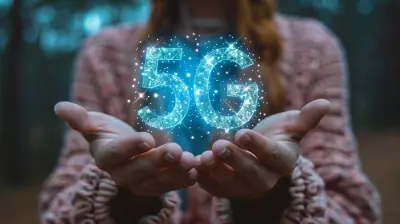
How 5G is Empowering the Remote Workforce

How AI is Improving the Speed and Efficiency of Wearable Tech